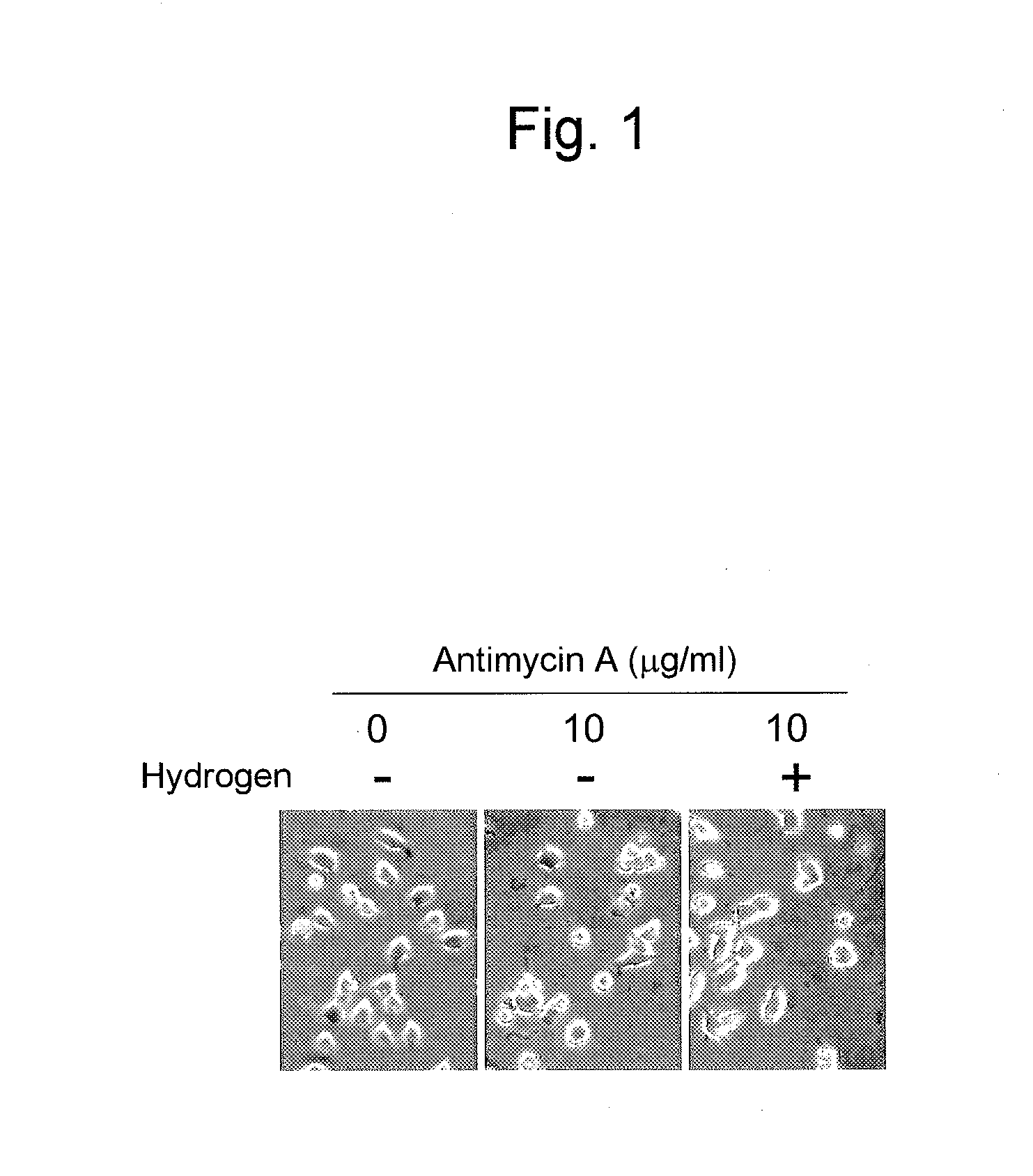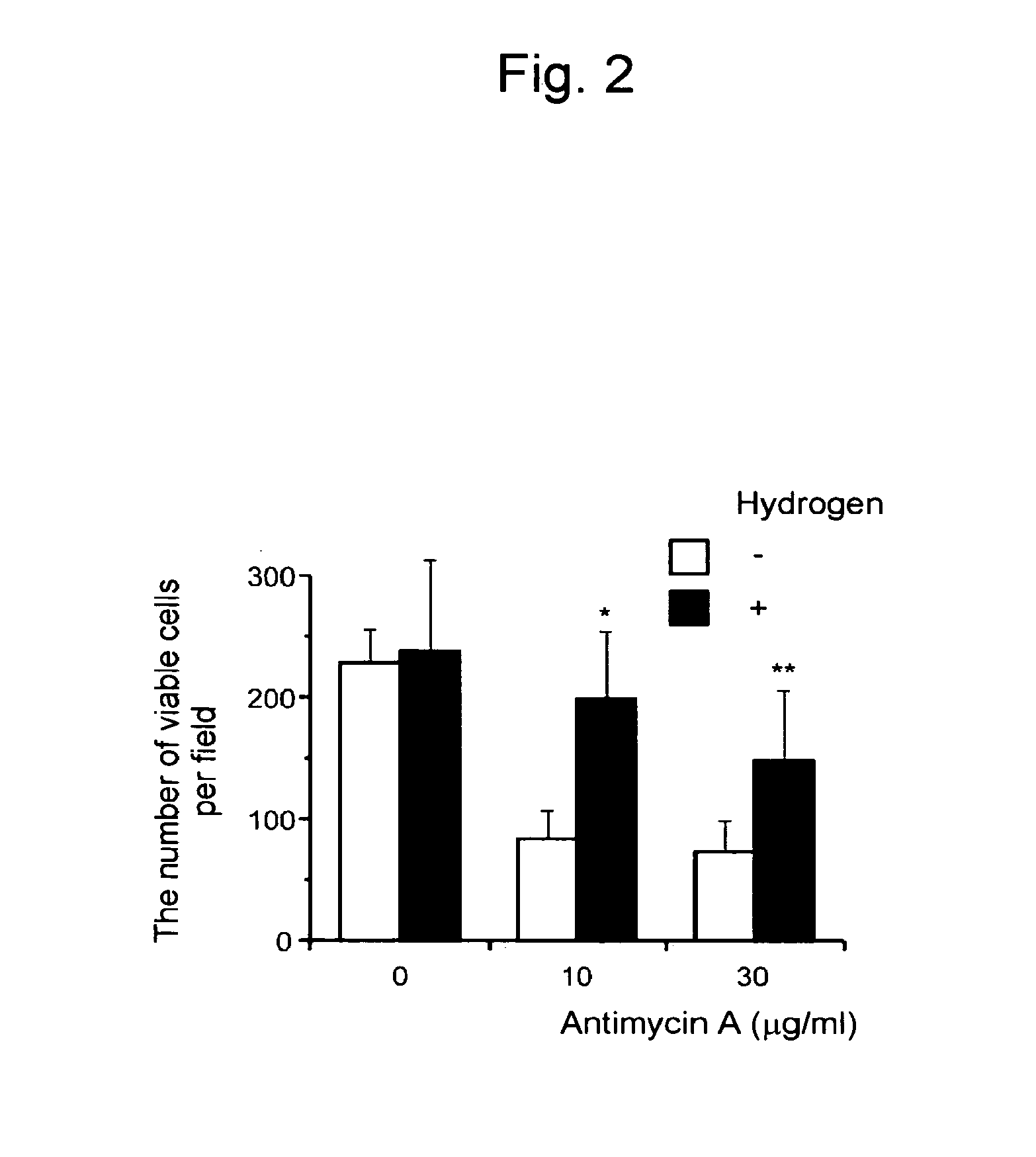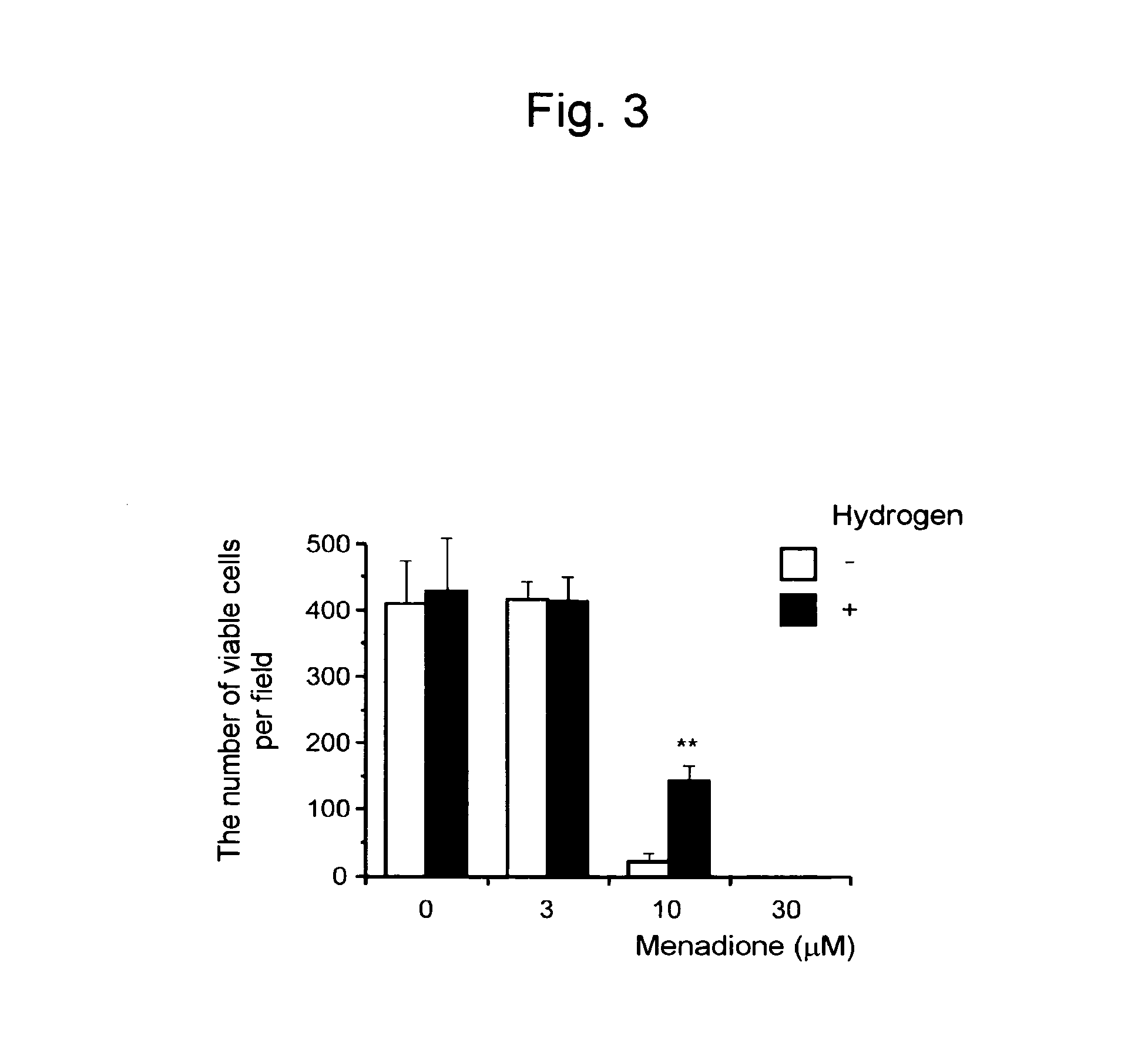Scavenger of in vivo harmful reactive oxygen species and/or free radicals
a technology of reactive oxygen species and free radicals, which is applied in the direction of antinoxious agents, drug compositions, metabolic disorders, etc., can solve the problems that both of these vitamins cannot free radicals are harmful, and agents cannot always easily reach the internal regions of cells, so as to reduce oxidative stress, suppress aging process, and reduce damage
- Summary
- Abstract
- Description
- Claims
- Application Information
AI Technical Summary
Benefits of technology
Problems solved by technology
Method used
Image
Examples
example 1
[0120]Hydrogen molecules have been known to have reducing power. However, it is impossible to predict, as described above, whether hydrogen molecules can reduce, in a short time, molecular species participating in biologically important oxidation-reduction, and free radical molecules. Thus, in Example 1, hydrogen water was used to measure effects on each molecular species.
Preparation of Hydrogen Water
[0121]First, 1 l of water was injected into a 5-l pressure-resistant bottle (manufactured by UNICONTROLS. CO., LTD.). Then, hydrogen gas was charged thereinto at a pressure of 0.4 MPa. After 2 hours, water supplemented with hydrogen was collected from the bottle under reduced pressure. A hydrogen content was analyzed using a dissolved hydrogen measuring apparatus (manufactured by ABLE & Biott Co., Ltd.). Water containing approximately 0.8 mM saturated hydrogen (hydrogen water) was obtained by this method.
Measurement of Reactive Oxygen Species Eliminating Effects of Hydrogen Water
[0122]S...
example 2
[0130]Antimycin A, which is an inhibitor of mitochondrial respiratory chain complex III, promotes reactive oxygen species production in cells and induces oxidative stress-induced cell death as a result. Thus, in Example 2, the defensive effects of hydrogen against oxidative stress in the presence of antimycin A was measured.
Preparation of Hydrogen-Containing Medium
[0131]A cell culture medium requires containing oxygen, being almost neutral, and containing no metal ions with a high concentration. For preparing a culture medium containing oxygen and hydrogen molecules coexisting with each other, it can be predicted to separately dissolve these molecules under pressure according to the Henry's law. The space in the hydrogen pressure device is filled with oxygen. Then, hydrogen gas is compressed to 5 atm. The partial pressure of oxygen gas can be kept at 1 atm. Therefore, an oxygen concentration necessary for culture can be secured. Penicillin G (manufactured by Invitrogen) at a final c...
example 3
Examination of Inhibitory Effects of Hydrogen on Cell Death Induced by Menadione
[0137]Menadione, which is an inhibitor of mitochondrial respiratory chain complex I, promotes reactive oxygen species production in cells and induces oxidative stress-induced cell death as a result. Thus, to measure the defensive effects of hydrogen against oxidative stress as in the experiment on antimycin A-induced cell death shown in Example 2, PC12 cells were cultured in a collagen-coated 24-well cell culture dish. Then, 2-ml of the hydrogen-containing medium supplemented or unsupplemented with menadione (manufactured by Sigma) at varying concentrations was added to each well. After 24 hours, the number of viable cells having a pyramid-shaped cell form was counted under a phase contrast microscope. In this experiment, a hydrogen-free medium was used as a comparative control. The results are shown in FIG. 3. The bar graph shows an average of at least 4 wells, and the error bars denote standard deviati...
PUM
 Login to View More
Login to View More Abstract
Description
Claims
Application Information
 Login to View More
Login to View More - R&D
- Intellectual Property
- Life Sciences
- Materials
- Tech Scout
- Unparalleled Data Quality
- Higher Quality Content
- 60% Fewer Hallucinations
Browse by: Latest US Patents, China's latest patents, Technical Efficacy Thesaurus, Application Domain, Technology Topic, Popular Technical Reports.
© 2025 PatSnap. All rights reserved.Legal|Privacy policy|Modern Slavery Act Transparency Statement|Sitemap|About US| Contact US: help@patsnap.com



